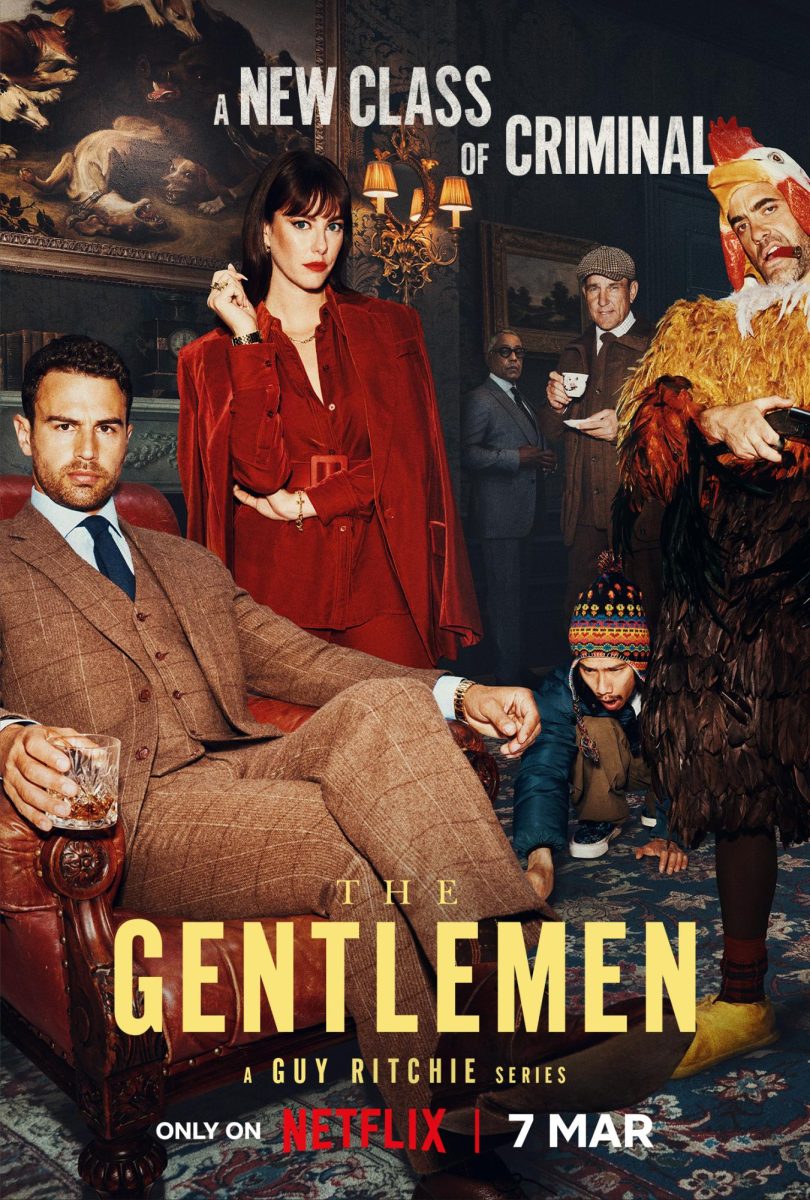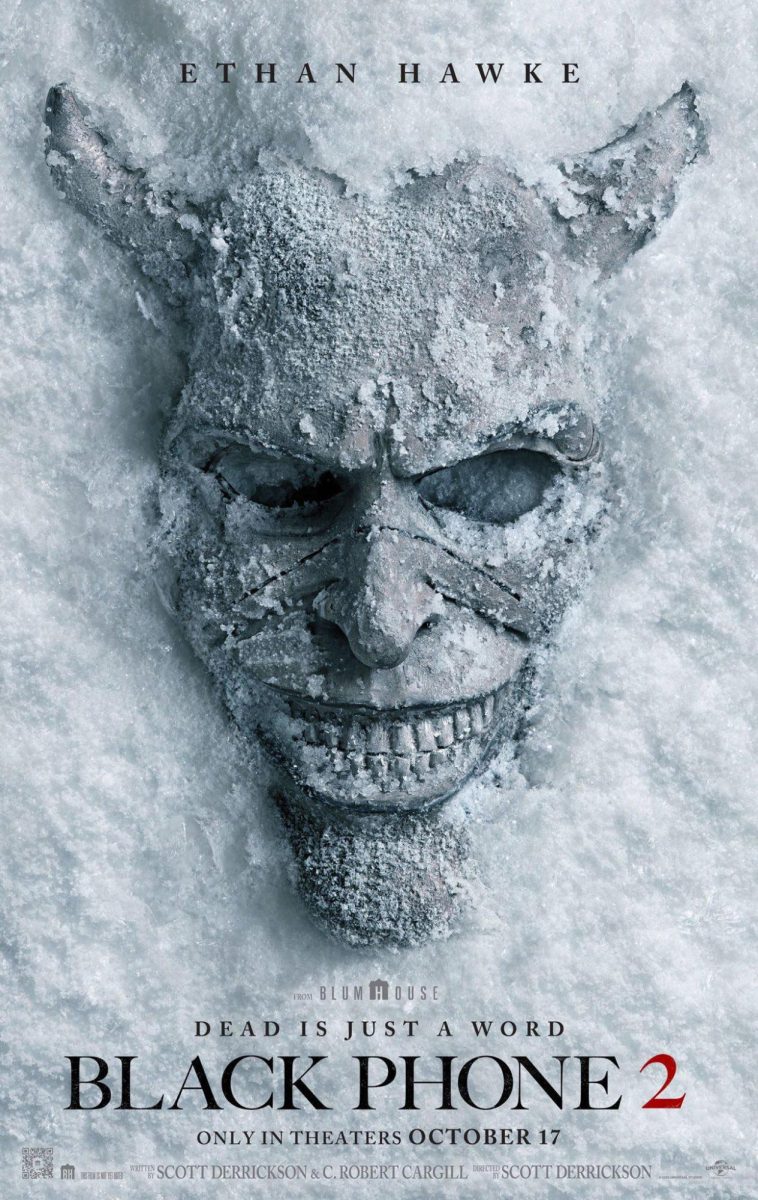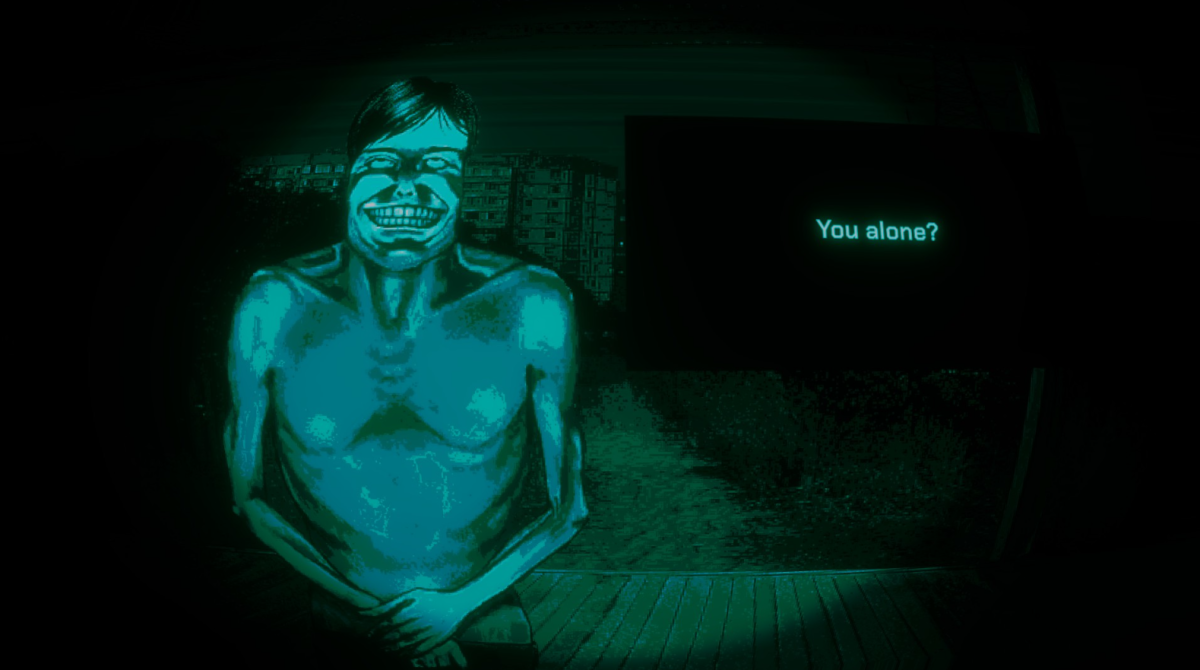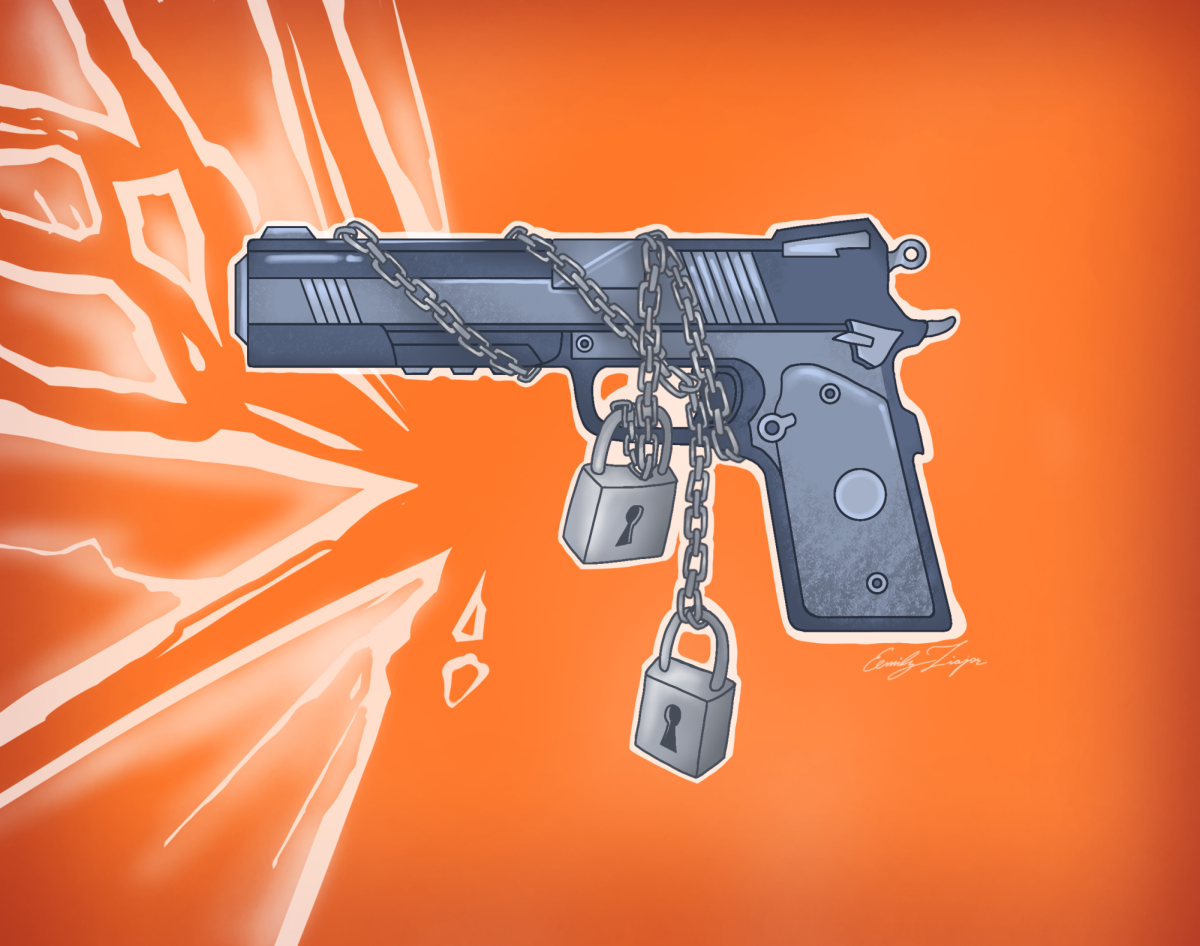The obsession with gangster crime TV expired two decades ago. So, I was surprised to see that Netflix had put its carefully crafted faith into a new TV series, “The Gentlemen.” And the show certainly doesn’t break the mold. “The Gentlemen” provides meaningless entertainment through colorful shots of suspense and violence, but does not give true access to the intellectual maneuvering of staying alive in crime.
The show focuses on the ascension of a British aristocrat named Eddie who takes over his late father’s estate despite being the second in line.
However, he soon finds out his father had been allowing a drug dealer to grow marijuana on their property. Eddie soon becomes embroiled in the drug business, partly as a result of his coke-addicted brother (who was rightfully written out of the will).
While Eddie attempts to remove himself from the consequences of housing a drug distribution empire, he soon adopts a kill-or-be-killed ethos. Before he knows it, his good intentions to help his idiotic brother turn him into a murdering criminal, keeping him entrenched in this criminal activity for our viewing pleasure.
This series was a television spin-off of Guy Ritchie’s movie by the same name. Ritchie acted as a writer and producer of the series. He has historically focused on crime stories set in England.
The plot itself is lacking in direction, focused on farce and heavy dialogue rather than substantial and complex plotlines. Eddie’s posh background makes him woefully unprepared for the duties of a crime boss syndicate, but the script keeps proclaiming that he is able to adapt to his new professional ability by staying levelheaded.
However, this is contrasted by many nonsensical actions. For example, Eddie relies on his brother not to be a complete idiot when he is forced to steal a Lamborghini, adopting a fake Russian accent and being decked in fur. I fail to see Ritchie’s humor.
Rather, he relies on the help of the drug overseer, Susie, to repeatedly bail him out of situations. When Eddie’s brother loses a multimillion-dollar bet, she is the one to negotiate a way out. She sees the (alleged) potential in Eddie’s abilities to become a real crime boss coupled with a will-they-won’t-they situation. Her strong female presence is displayed as Susie constantly struts in a red velvet power suit. What a girl boss.
Of course, Ritchie must moralize the characters. We still have to hold empathy for Eddie and Susie, as once every episode they state that murder is bad (or just really bad for business). Rather, there seems to be a rejection of the class system that is still so prevalent in England (they do have Dukes after all). These crime bosses prey on a privileged and arrogant upper class who has gained their undeserved wealth through nefarious means.
Of course, the characters do have a point. Wealth was and is distributed mainly through various forms of exploitation. However, the implication that people should exploit loopholes for personal gain, rather than change the system that allows it is incorrect. Again, Ritchie moralizes for the sake of it and to show how “cool” the characters are, and it lacks really any social impact. As stated in one of the more drippy and obvious monologues, the crime bosses “survive in the jungle, [while the aristocracy] exist in the zoo.”
I also don’t entirely believe that the humor translates successfully to an American audience. I quite honestly do not understand the Britishisms. I don’t know how accurate they are, but with Ritchie’s heavy-handed and overly explanatory writing style, they seem to turn the characters into caricatures. Also, this idea of murder over the distribution of marijuana is slightly jarring.
Overall, it can be a fun watch but is ultimately meaningless. If you are bored one weekend and enjoy a thriller, I would recommend it. But if you would rather watch something a little more intellectually interesting, it is a hard pass.
2.5/5











